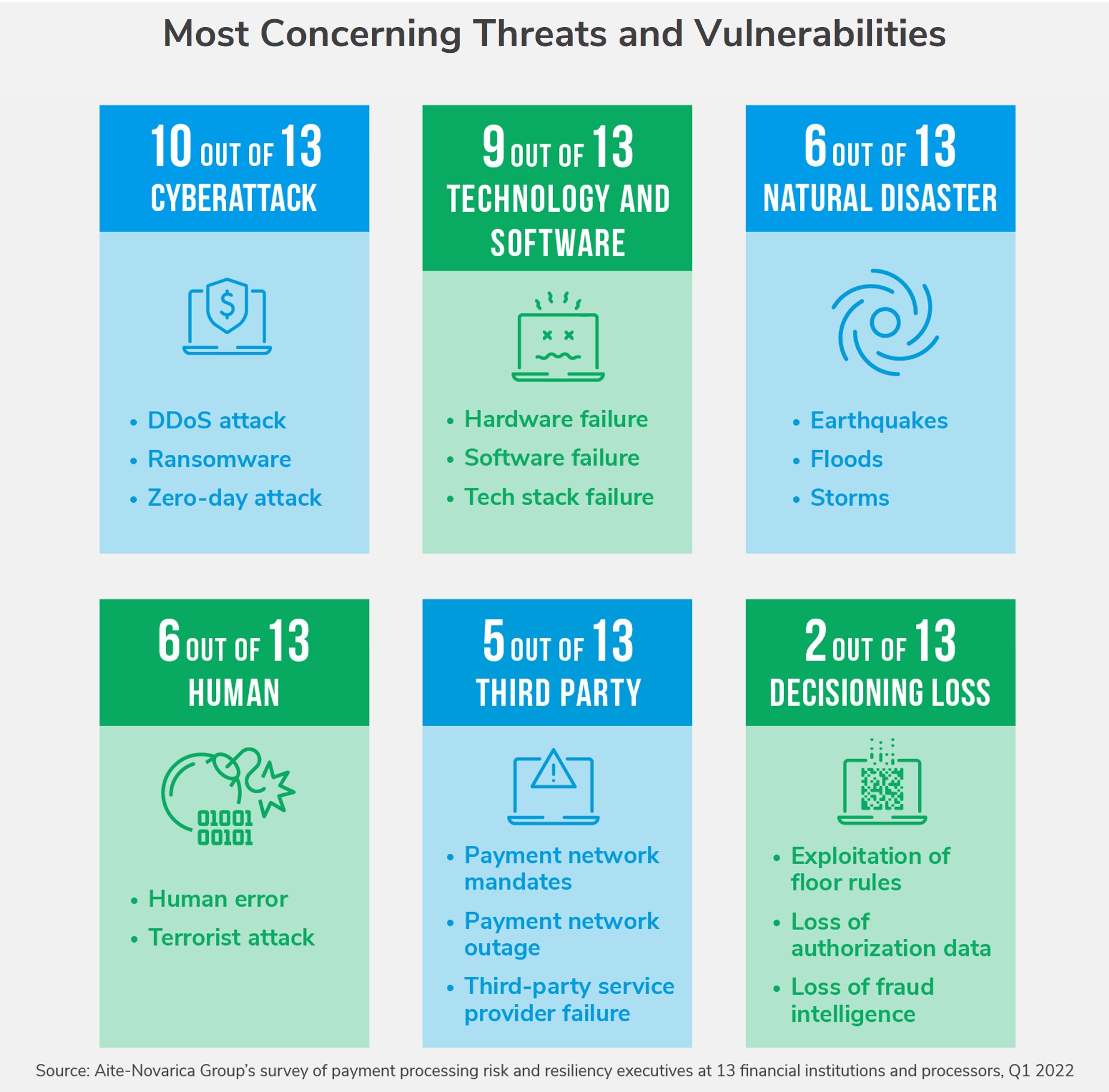May 4, 2022 – As payment processing outages and the emerging competitive pressures of open banking have highlighted a need for improved resiliency strategies, continuity of payment processing is now crucial for the reputation of both financial institutions and processors. Financial institutions and processors must recognize that the resiliency of core banking functions is a competitive, legal, and regulatory imperative.

This report provides insights into the current and future state of payment processing resiliency approaches used across a representative set of acquirers, issuers, and processors that are geographically disbursed, establishing a baseline of resiliency approaches today, and calls out drivers influencing the resiliency of tomorrow. Aite-Novarica Group interviewed key payment processing risk and resiliency executives at global financial institutions and processors during November and December 2021.
This 34-page Impact Report contains 15 figures and five tables. Clients of Aite-Novarica Group’s Cybersecurity, Commercial Banking & Payments, or Retail Banking & Payments services can download this report and the corresponding charts.
This report mentions Axelos, Barclays Bank, Basel Committee on Banking Supervision, Commonwealth Bank, DBS Holdings Group Ltd., Federal Financial Institutions Examination Council, Federal Reserve, Galileo, International Consortium for Organizational Resilience, International Organization for Standardization, JPMorgan Chase, National Australia Bank, National Institute of Standards and Technology, Office of the Comptroller of the Currency, Opayo, Prudential Regulation Authority, Reserve Bank of Australia, Revised Financial Conduct Authority, Uptime Institute, Visa, and Worldpay.